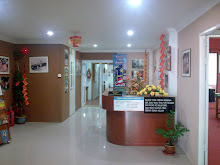Government tests found one-fifth of China’s companies producing baby milk powder had melamine in their products. So far, four deaths reported while more than 53,000 infants have fallen ill
MELAMINE has become a rogue word overnight. And not without good reason.
Four babies had died and more than 53,000 taken ill in China to date after drinking milk made from powder tainted with this plastic-derived chemical.
All of a sudden, it is not safe giving your babies milk power imported from China and the scare has spread beyond the borders of the mainland as parents the world over are on tenterhooks, not knowing whether they have unknowingly given the tainted milk to their infants before the melamine crisis broke out.
Even two gorillas — aged one and three — from Hangzhou Wildlife World in Zhejiang province are suspected of becoming the latest victims, showing the early signs of kidney stones.
Certainly, it’s no longer a distant concern — the feeling of uneasiness and trepidation is real.
Local reactions range from fear to outrage ever since news broke that melamine has been found in milk powder manufactured by some China dairy companies, notably the Sanlu Group Co in Shijiazhuang southwest of Beijing.
The melamine scare began with complaints over milk powder manufactured by the Sanlu Group Co — one of China’s best-known and most respected brands.
But the scare quickly became a much larger crisis as government tests found that one-fifth of the country’s companies producing baby milk powder had melamine in their products.
So far, four deaths have been reported and more than 53,000 infants have fallen ill because of the toxic milk powder, known to cause kidney stones and agonising complications. Hence, a string of Asian countries, including Malaysia, have banned or recalled milk products imported from China.
Melamine was first found in infant milk formula in China markets but has since been detected in a range of products with dairy ingredients both in China and abroad. An industrial chemical used in plastics, the substance has been added to diluted milk products to make it appear richer in protein.
Sunday, September 28, 2008
Subscribe to:
Post Comments (Atom)



.jpg)

No comments:
Post a Comment